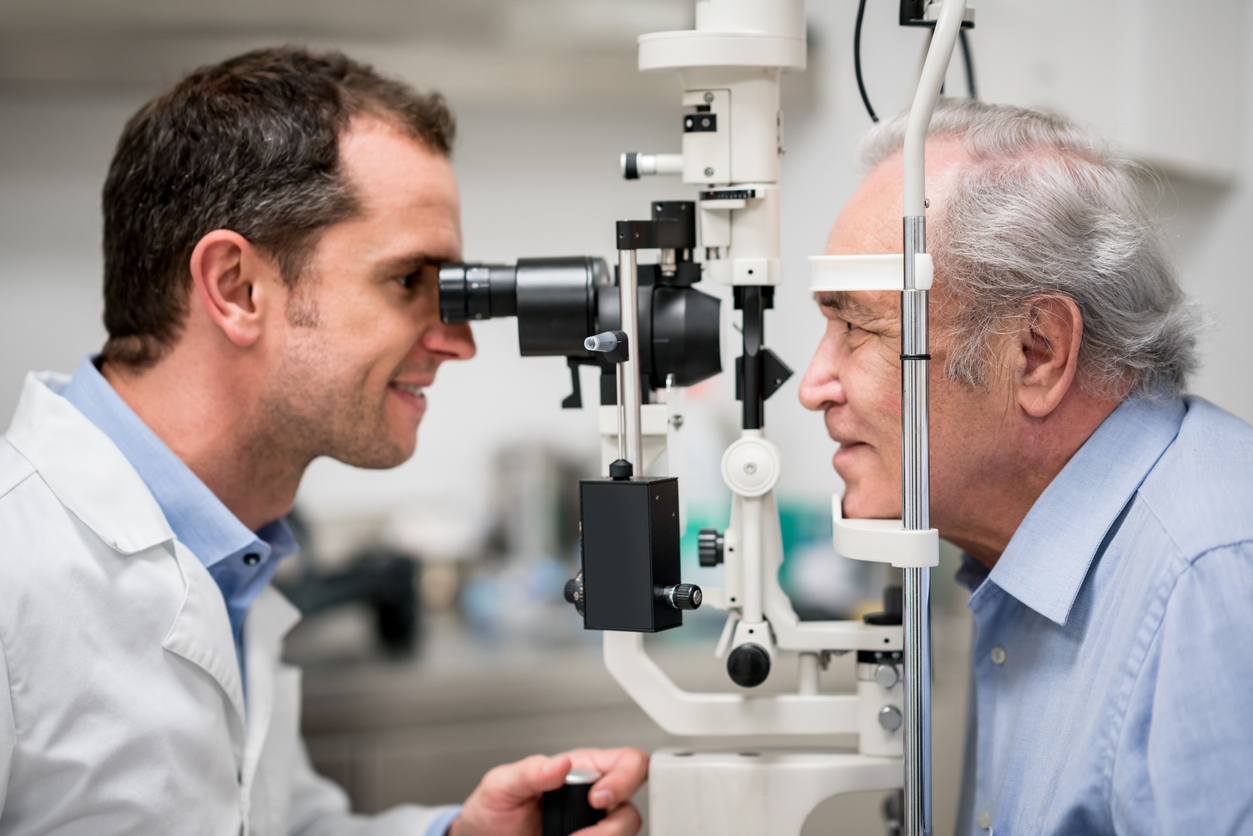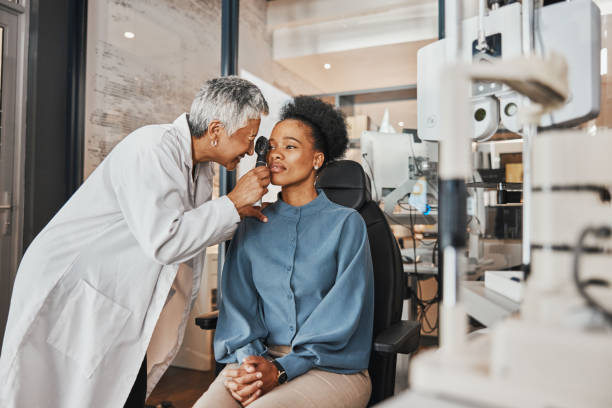Montgomery Eye Doctor: Personalized Eye Care and Vision Solutions
Montgomery Eye Doctor: Personalized Eye Care and Vision Solutions
Blog Article
The Relevance of Normal Eye Examinations: Insights From a Knowledgeable Optometrist
Normal eye examinations serve as a critical element of healthcare that prolongs beyond mere vision modification. A knowledgeable eye medical professional can offer insights right into just how these analyses not just find typical eye conditions but likewise expose underlying health issues that might or else go unnoticed.
Benefits of Normal Eye Examinations
Although numerous people may ignore the relevance of routine eye tests, these analyses play an essential duty in maintaining total wellness and wellness. Normal eye examinations offer not only to assess vision however likewise to detect early signs of systemic wellness issues, consisting of diabetic issues and high blood pressure. By identifying these conditions at their inception, patients can get prompt interventions, significantly enhancing lasting end results.
Furthermore, eye tests can aid in keeping track of existing wellness issues, making certain that any type of adjustments in vision or eye wellness are quickly resolved (optometrist). The analyses enable customized recommendations relating to glasses, lifestyle modifications, and safety steps against possible eye stress or damages
Beyond physical wellness, the advantages of routine eye tests encompass improving high quality of life. Enhanced vision promotes better performance in daily tasks, from checking out to driving, thus adding to greater freedom and security. Inevitably, focusing on eye tests fosters a positive approach to wellness administration, empowering individuals to organize their wellness. Normal examinations are an essential element of a detailed healthcare approach, guaranteeing that both vision and overall health are maintained throughout life.
Common Eye Conditions Detected
Normal eye examinations contribute in identifying a range of typical eye problems that can dramatically affect vision and total wellness. Amongst the most common conditions identified throughout these assessments are refractive errors, including nearsightedness (nearsightedness), hyperopia (farsightedness), and astigmatism. These problems usually materialize as obscured vision and can be conveniently fixed with prescription glasses or get in touch with lenses.
An additional typical problem is glaucoma, a team of eye conditions that harm the optic nerve, typically linked to enhanced intraocular stress. Early discovery is crucial as it can protect against permanent vision loss.
Age-related macular deterioration (AMD) is one more significant problem that impacts central vision, especially in people over 50. Ultimately, diabetic person retinopathy, a difficulty of diabetes mellitus, can cause serious vision disability if not kept track of routinely. With comprehensive eye tests, these problems can be recognized early, permitting timely management and therapy to maintain vision and boost lifestyle.
Value of Very Early Discovery
Very early detection of eye conditions plays an important function in protecting vision and preventing substantial health and wellness complications. Lots of eye conditions, such as glaucoma, diabetic person retinopathy, and age-related macular deterioration, can progress quietly without visible symptoms in their early phases. By the time symptoms show up, irreversible damages read more may have taken place, causing long-term vision loss.
Routine eye exams help with very early diagnosis, enabling prompt treatment and therapy. As an example, treating elevated intraocular pressure can avoid the onset of glaucoma, while handling blood sugar levels can considerably minimize the risk of diabetic person retinopathy. In addition, conditions like cataracts can be successfully handled with medical treatment when determined early.

Just How Frequently Should You Visit?
Identifying the frequency of eye tests is essential for keeping ideal eye health and vision. The general suggestion for adults is to have a thorough eye exam each to 2 years, depending on private danger elements and age. For individuals matured 18 to 60, an examination every 2 years is generally enough if no vision problems are present. Nonetheless, those over 60 need to take into consideration annual examinations, as the risk of age-related conditions raises substantially.
Individuals with particular danger elements, such as a household history of eye illness, diabetic issues, or existing vision issues, might require even more regular analyses. Youngsters ought to have their very first eye examination at six months of age, adhered to by added tests at age 3 and prior to getting in school. Routine check-ups throughout childhood are critical as vision can alter quickly during developing years.
Inevitably, the regularity of brows through must be tailored to every person's situations, including lifestyle, work hazards, and any pre-existing eye problems. Consulting with an eye treatment expert can provide individualized referrals, ensuring that your eye health and wellness is regularly kept track of and kept.
Tips for Your Eye Test
Planning for your eye test can enhance the effectiveness of the browse through and guarantee an extensive evaluation of your eye health. To optimize your time with the eye doctor, it is essential to navigate to these guys gather pertinent information before your consultation. Begin by putting together a checklist of any medications you are presently taking, including non-prescription medicines and supplements, as these can influence eye health and wellness.
Additionally, record any type of symptoms you have actually experienced, such as obscured vision, discomfort, or headaches. This information will help your eye doctor in detecting potential problems.
It is likewise advantageous to have a family background of eye problems at hand, as hereditary variables can add to your eye health and wellness. Lastly, consider scheduling your my latest blog post exam for a while when you are much less hurried, allowing you to ask concerns and discuss your concerns extensively. By preparing appropriately, you guarantee that your eye test is productive which your optometrist has all the needed info to supply the ideal care feasible.

Conclusion
Normal eye exams play an important duty in maintaining both vision and general health. They assist in the early discovery of numerous eye problems and systemic concerns, permitting timely treatment. The recommendations for frequency highlight the relevance of aggressive treatment. Carrying out straightforward preparatory suggestions can improve the evaluation experience. Ultimately, focusing on detailed eye assessments contributes significantly to the conservation of vision and the improvement of lifestyle, underscoring the requirement of regular eye care in preventative healthcare strategies.
Routine eye tests are crucial in identifying a range of usual eye conditions that can considerably affect vision and general health.Establishing the frequency of eye examinations is essential for preserving optimal eye health and wellness and vision.Preparing for your eye test can enhance the performance of the go to and make certain a comprehensive assessment of your eye health (optometrist). By preparing appropriately, you guarantee that your eye exam is productive and that your eye physician has all the required details to provide the ideal treatment feasible
Ultimately, focusing on comprehensive eye analyses contributes dramatically to the conservation of vision and the improvement of high quality of life, highlighting the requirement of regular eye care in precautionary health care strategies.
Report this page